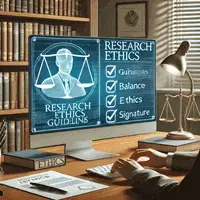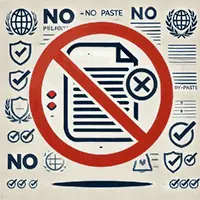 The foundation of a well-researched and meticulously written thesis lies in the accurate and comprehensive citation of sources. Citations not only lend credibility to your work but also demonstrate your commitment to academic integrity. However, the process of compiling and formatting citations can be an arduous and time-consuming task, fraught with the potential for errors. This is where the invaluable service of our experts comes into play, offering assistance in the crucial endeavor of citation verifying for a thesis. We commit to ensuring the highest standards of accuracy and reliability in your thesis citations. We understand that a single erroneous citation can undermine the credibility of your entire research, which is why we have assembled a team of experts who specialize in the art of reference cross-checking. Our meticulous approach involves scrutinizing each citation in your thesis, verifying the source's authenticity, and ensuring that it adheres to the specified citation style, be it APA, MLA, Chicago, or any other. One of the key facets of our service is the thorough auditing of thesis citations. We recognize that scholars and students alike may not always have the time or resources to dedicate to this critical aspect of their work. That's where we step in, offering our expertise to meticulously review your citations, identifying any inconsistencies, missing information, or inaccuracies. Our team is well-versed in the nuances of different citation styles, ensuring that your references align perfectly with the prescribed guidelines. In addition to ensuring accuracy, we also focus on enhancing the overall quality of your references. We go beyond mere cross-checking to suggest improvements in formatting, citation order, and presentation, thereby elevating the professionalism and coherence of your thesis. As you embark on your academic journey, let us be your trusted partner in the quest for excellence in scholarly writing. Our dedicated team is committed to helping you present a thesis that not only meets the highest academic standards but also showcases your dedication to meticulous research and unwavering commitment to academic integrity. With our expertise, you can rest assured that your citations will be a testament to the rigor and precision of your work, earning you the recognition and respect your research truly deserves. We offer reliable auditing services for thesis citations.
The foundation of a well-researched and meticulously written thesis lies in the accurate and comprehensive citation of sources. Citations not only lend credibility to your work but also demonstrate your commitment to academic integrity. However, the process of compiling and formatting citations can be an arduous and time-consuming task, fraught with the potential for errors. This is where the invaluable service of our experts comes into play, offering assistance in the crucial endeavor of citation verifying for a thesis. We commit to ensuring the highest standards of accuracy and reliability in your thesis citations. We understand that a single erroneous citation can undermine the credibility of your entire research, which is why we have assembled a team of experts who specialize in the art of reference cross-checking. Our meticulous approach involves scrutinizing each citation in your thesis, verifying the source's authenticity, and ensuring that it adheres to the specified citation style, be it APA, MLA, Chicago, or any other. One of the key facets of our service is the thorough auditing of thesis citations. We recognize that scholars and students alike may not always have the time or resources to dedicate to this critical aspect of their work. That's where we step in, offering our expertise to meticulously review your citations, identifying any inconsistencies, missing information, or inaccuracies. Our team is well-versed in the nuances of different citation styles, ensuring that your references align perfectly with the prescribed guidelines. In addition to ensuring accuracy, we also focus on enhancing the overall quality of your references. We go beyond mere cross-checking to suggest improvements in formatting, citation order, and presentation, thereby elevating the professionalism and coherence of your thesis. As you embark on your academic journey, let us be your trusted partner in the quest for excellence in scholarly writing. Our dedicated team is committed to helping you present a thesis that not only meets the highest academic standards but also showcases your dedication to meticulous research and unwavering commitment to academic integrity. With our expertise, you can rest assured that your citations will be a testament to the rigor and precision of your work, earning you the recognition and respect your research truly deserves. We offer reliable auditing services for thesis citations.
What are the common mistakes to avoid in thesis references?
Avoiding common mistakes in thesis references is essential to maintain academic integrity and credibility. Here are some key errors to watch out for:
- Inaccurate citations: Ensure that all references are cited correctly using the appropriate citation style (e.g., APA, MLA, Chicago). Double-check authors' names, publication dates, page numbers, and titles.
- Missing sources: Ensure you include all the sources you have cited in your thesis. Neglecting to include a source can lead to accusations of plagiarism.
- Inconsistent formatting: Maintain consistent formatting throughout your reference list. Pay attention to the order of elements (e.g., author, title, publication date), use of italics or quotation marks, and punctuation.
- Improper use of et al.: Use "et al." correctly when referencing multiple authors. Be aware of the citation style's rules for when to use it, typically after listing the names of all authors the first time.
- Plagiarism: Avoid plagiarism by properly paraphrasing and citing sources. Failure to do so can result in severe academic consequences.
- Incorrect page numbers: Ensure that page numbers in citations correspond to the specific pages where the information was found in the source.
- Unreliable sources: Use credible and peer-reviewed sources in your thesis. Avoid citing unreliable websites or outdated materials.
- Over-reliance on secondary sources: Whenever possible, cite primary sources directly rather than relying on secondary sources that interpret or paraphrase them.
- Neglecting to update references: If your thesis spans multiple drafts, make sure to update your references to reflect any changes or additions made during the revision process.
Why should students prioritize our expert citation reviewing in a thesis?
Students should consider seeking our thesis citations auditing help, as these references serve as the foundation of academic research, demonstrating that the student's work is built upon a solid scholarly framework. By citing our experts in the field, students acknowledge the existing body of knowledge and establish their thesis within the broader academic discourse. Also, our expert citations provide credibility and authority to the thesis. Referencing renowned scholars and reputable sources lends weight to the student's arguments, increasing the likelihood of their work being taken seriously by both peers and evaluators. Additionally, a thorough citation review demonstrates the student's commitment to academic integrity. Properly attributing ideas and data to their sources shows respect for intellectual property and ethical research practices. Furthermore, our expert citations can enhance the depth and breadth of the thesis by introducing readers to relevant literature, alternative perspectives, and valuable insights. This not only strengthens the argument but also enriches the overall quality of the research. Ultimately, prioritizing our expert citation reviewing in a thesis is a mark of rigor, scholarship, and professionalism. It enhances the thesis's academic standing, integrity, and impact, making it an essential aspect of any successful research project.
The best time-saving tips for effective citation auditing in your thesis
These strategies include;
- Use Citation Management Software: Invest time in learning and using citation management software like Zotero, EndNote, or Mendeley. These tools can help you organize your references, automatically generate citations, and easily switch between citation styles.
- Keep Detailed Records: Maintain a well-organized database of your sources. Record essential information such as author names, publication dates, page numbers, and publication titles to avoid having to hunt for this information later.
- Consistent Citation Style: Stick to a single citation style throughout your thesis, such as APA, MLA, or Chicago. This ensures uniformity and saves time during the auditing process.
- Check Citations as You Go: Review and verify your citations as you add them to your thesis. This prevents errors from accumulating and becoming overwhelming to correct later.
- Regularly Update Citations: Stay updated on the latest editions of citation style guides and ensure your citations adhere to the most recent guidelines. This saves you from having to make significant adjustments later on.
- Use Citation Auditing Tools: Some online tools and plugins can help you cross-check your citations for accuracy and consistency. Tools like Citation Machine or Citation Audit can be handy for this purpose.
- Plan Ahead: Allocate dedicated time for citation auditing in your research schedule. Avoid leaving it until the last minute to prevent unnecessary stress and rushed corrections.
- Attend Workshops: Attend workshops or webinars on citation management and auditing techniques offered by your university or library. These can provide valuable insights and tips.
- Stay Informed: Stay informed about any changes or updates in citation guidelines and adapt your thesis accordingly. This proactive approach will save you time in the long run.
 The art of auditing reference is an irreplaceable step in ensuring the academic integrity, credibility, and quality of research work. This meticulous task involves a comprehensive examination of the sources cited in a thesis to verify their accuracy, relevance, and consistency. While it may be a time-consuming endeavor, its benefits far outweigh the effort invested. Citation auditing helps to maintain the highest standards of academic honesty. It ensures that all sources referenced in the thesis are properly credited to their original authors, preventing plagiarism and upholding the researcher's integrity. This practice aligns with the ethical principles that underpin scholarly research. Moreover, reference checking plays a pivotal role in enhancing the overall quality of the thesis. By verifying the accuracy and relevance of the cited sources, researchers can fortify their arguments and substantiate their claims effectively. This not only strengthens the thesis's academic rigor but also elevates its credibility in the eyes of both peers and evaluators. Additionally, a well-audited list of citations aids future scholars and researchers in their academic pursuits. It serves as a reliable resource for those seeking to delve deeper into the subject matter and build upon the work presented in the thesis. This legacy of accurate and well-vetted references contributes to the advancement of knowledge within a particular field of study. Citation auditing is an essential component of the research process, ensuring both the researcher's academic integrity and the quality of the work produced. It is a practice that not only benefits the author but also the broader academic community, fostering a culture of trust, credibility, and excellence in scholarly endeavors. Therefore, researchers must dedicate the time and effort required to undertake this critical step in the thesis-writing process.
The art of auditing reference is an irreplaceable step in ensuring the academic integrity, credibility, and quality of research work. This meticulous task involves a comprehensive examination of the sources cited in a thesis to verify their accuracy, relevance, and consistency. While it may be a time-consuming endeavor, its benefits far outweigh the effort invested. Citation auditing helps to maintain the highest standards of academic honesty. It ensures that all sources referenced in the thesis are properly credited to their original authors, preventing plagiarism and upholding the researcher's integrity. This practice aligns with the ethical principles that underpin scholarly research. Moreover, reference checking plays a pivotal role in enhancing the overall quality of the thesis. By verifying the accuracy and relevance of the cited sources, researchers can fortify their arguments and substantiate their claims effectively. This not only strengthens the thesis's academic rigor but also elevates its credibility in the eyes of both peers and evaluators. Additionally, a well-audited list of citations aids future scholars and researchers in their academic pursuits. It serves as a reliable resource for those seeking to delve deeper into the subject matter and build upon the work presented in the thesis. This legacy of accurate and well-vetted references contributes to the advancement of knowledge within a particular field of study. Citation auditing is an essential component of the research process, ensuring both the researcher's academic integrity and the quality of the work produced. It is a practice that not only benefits the author but also the broader academic community, fostering a culture of trust, credibility, and excellence in scholarly endeavors. Therefore, researchers must dedicate the time and effort required to undertake this critical step in the thesis-writing process.
Help to Review References in a Thesis | Academic Citation Analysis
 In the realm of academic research and scholarly pursuits, a thesis represents the culmination of years of dedication, rigorous investigation, and a profound commitment to the pursuit of knowledge. Within the pages of this intellectual opus, references and citations play a pivotal role, serving as the very pillars upon which the edifice of academic discourse rests. These citations not only substantiate the claims made by the author but also provide a roadmap for readers to delve deeper into the vast expanse of existing knowledge. However, in the complex tapestry of academic citation, errors and inconsistencies can inadvertently creep in, marring the integrity and credibility of the entire work. This is where the indispensable service of skilled thesis reference auditors comes into play. These professionals, armed with a keen eye for detail and an intimate understanding of citation styles and academic standards, serve as the guardians of precision in academic writing. Their role is paramount in ensuring that every reference and citation within a thesis adheres to the rigorous criteria set forth by the academic community, leaving no room for doubt or ambiguity. We ensure meticulous examination of each reference, scrutinizing not just the accuracy of citations but also the completeness and consistency of the referencing style throughout the document. Our auditors possess a deep knowledge of various citation styles, such as APA, MLA, Chicago, and Harvard, and are adept at harmonizing them with the specific requirements of the academic institution or journal guidelines. Furthermore, their expertise extends beyond mere technical correctness. They also evaluate the relevance and appropriateness of each citation in the context of the thesis, ensuring that the selected references contribute meaningfully to the scholarly discourse. In doing so, they help authors craft a thesis that not only meets the highest academic standards but also stands as a testament to the rigor and intellectual acumen of the researcher. In this era of relentless pursuit of excellence in academia, we offer expert help to audit citations in a thesis. Our expert’s dedication to precision and commitment to elevating the quality of academic research through accurate and well-structured references is a beacon of light for scholars navigating the intricate labyrinth of citations within their theses.
In the realm of academic research and scholarly pursuits, a thesis represents the culmination of years of dedication, rigorous investigation, and a profound commitment to the pursuit of knowledge. Within the pages of this intellectual opus, references and citations play a pivotal role, serving as the very pillars upon which the edifice of academic discourse rests. These citations not only substantiate the claims made by the author but also provide a roadmap for readers to delve deeper into the vast expanse of existing knowledge. However, in the complex tapestry of academic citation, errors and inconsistencies can inadvertently creep in, marring the integrity and credibility of the entire work. This is where the indispensable service of skilled thesis reference auditors comes into play. These professionals, armed with a keen eye for detail and an intimate understanding of citation styles and academic standards, serve as the guardians of precision in academic writing. Their role is paramount in ensuring that every reference and citation within a thesis adheres to the rigorous criteria set forth by the academic community, leaving no room for doubt or ambiguity. We ensure meticulous examination of each reference, scrutinizing not just the accuracy of citations but also the completeness and consistency of the referencing style throughout the document. Our auditors possess a deep knowledge of various citation styles, such as APA, MLA, Chicago, and Harvard, and are adept at harmonizing them with the specific requirements of the academic institution or journal guidelines. Furthermore, their expertise extends beyond mere technical correctness. They also evaluate the relevance and appropriateness of each citation in the context of the thesis, ensuring that the selected references contribute meaningfully to the scholarly discourse. In doing so, they help authors craft a thesis that not only meets the highest academic standards but also stands as a testament to the rigor and intellectual acumen of the researcher. In this era of relentless pursuit of excellence in academia, we offer expert help to audit citations in a thesis. Our expert’s dedication to precision and commitment to elevating the quality of academic research through accurate and well-structured references is a beacon of light for scholars navigating the intricate labyrinth of citations within their theses.
The impact of thesis reference cross-check on quality and originality
Thesis reference cross-checks play a crucial role in enhancing the quality and originality of academic research. These cross-checks involve verifying the accuracy and appropriateness of the references cited in a thesis. They impact the quality and originality of your work by ensuring;
- Quality Assurance: Cross-checking references ensures that the sources cited are reliable, up-to-date, and relevant to the research topic. This quality control step helps eliminate inaccuracies, outdated information, or questionable sources, thereby enhancing the overall quality of the thesis.
- Plagiarism Prevention: Cross-checking references help detect instances of plagiarism by identifying any improper or unattributed use of others' work. This ensures that the thesis maintains its originality and integrity, as plagiarism can seriously undermine the scholarly contribution of the research.
- Enhanced Credibility: A well-referenced thesis demonstrates thorough research and builds credibility for the author's work. Properly citing reputable sources adds authority to the thesis, making it more convincing and trustworthy.
- Originality Promotion: Through reference cross-checks, students and researchers are encouraged to explore a wide range of sources, fostering a deeper understanding of the existing literature. This process can stimulate original thinking and innovative ideas by synthesizing diverse perspectives.
- Academic Ethical Standards: Adhering to referencing guidelines and cross-checking references ensures that the thesis complies with academic ethical standards. This promotes fairness, transparency, and responsible research conduct.
How can our thesis references auditors can help you avoid plagiarism?
Our expert auditors play a crucial role in preventing plagiarism by ensuring that your research is properly cited and attributed. By offering help to review references in a thesis, our experts can assist you in avoiding plagiarism. We help with;
- Source Verification: Our auditors can verify the authenticity and credibility of your references. They ensure that the sources you've cited are legitimate and relevant to your thesis, reducing the likelihood of using unreliable or fabricated information.
- Proper Citation: We can check if you've followed the required citation style (e.g., APA, MLA, Chicago) consistently throughout your thesis. This ensures that you give proper credit to the original authors and avoid unintentional plagiarism.
- Cross-Checking: Our experts can cross-reference your citations with the reference list to confirm that every source mentioned in your thesis is correctly documented. This helps in identifying any missing or incorrect citations.
- Plagiarism Detection: We use plagiarism detection software to compare your thesis with a vast database of academic and online content. This can uncover any instances of unintentional or deliberate plagiarism, including improper paraphrasing or unattributed content.
- Guidance and Education: Our reference auditors can guide you on proper citation practices and educate you on how to avoid plagiarism. This support can help you understand the importance of academic integrity and the consequences of plagiarism.
What’s the importance of citation auditing in thesis writing?
Citation auditing is a crucial aspect of thesis writing, to serve important purposes. Proper citations demonstrate academic integrity by giving credit to the original authors and sources of information, ideas, and data used in the thesis. It shows that the researcher has conducted thorough research and respects intellectual property rights. Also, auditing helps prevent plagiarism, which is a serious academic misconduct. Plagiarism can lead to severe consequences, including academic penalties and damage to one's academic and professional reputation. Accurate citations enhance the credibility and trustworthiness of the thesis. They allow readers to verify the information presented and evaluate the reliability of the sources, contributing to the overall quality of the research. More so, citations provide evidence and support for the arguments and claims made in the thesis. They demonstrate that the research is grounded in existing literature and expert opinions, making the thesis more persuasive. Proper citations also help future researchers by providing a clear trail to the sources used. This facilitates further investigation, replication of experiments, and building upon the existing knowledge base. Moreover, failure to properly cite sources can lead to legal issues, such as copyright infringement. Citations ensure that you are using others' work within the boundaries of the law.
 The process of reviewing references is a critical component of academic research and scholarly integrity. This endeavor serves multiple purposes that contribute to the overall quality and reliability of a research project. Auditing references ensures the accuracy and credibility of the sources used in the thesis. By carefully examining each citation, researchers can verify the relevance and authenticity of the information presented in their work. This helps to build trust among readers and peer reviewers, as they can be confident that the research is built upon a solid foundation of reputable sources. Additionally, citation analysis provides valuable insights into the scholarly landscape surrounding the research topic. Researchers can identify key influencers in the field, trace the evolution of ideas, and discover gaps in the existing literature. This not only enhances the depth of the thesis but also helps researchers position their work within the broader academic discourse. Moreover, the process of auditing references can help researchers avoid unintentional plagiarism. By meticulously tracking and properly citing the sources they use, researchers can ensure that they give proper credit to the original authors. This ethical practice is essential in upholding the principles of academic honesty and integrity. Essentially, we can help with checking references in a thesis. Citations review not only elevates the overall quality of the research but also contributes to the advancement of knowledge in the respective field.
The process of reviewing references is a critical component of academic research and scholarly integrity. This endeavor serves multiple purposes that contribute to the overall quality and reliability of a research project. Auditing references ensures the accuracy and credibility of the sources used in the thesis. By carefully examining each citation, researchers can verify the relevance and authenticity of the information presented in their work. This helps to build trust among readers and peer reviewers, as they can be confident that the research is built upon a solid foundation of reputable sources. Additionally, citation analysis provides valuable insights into the scholarly landscape surrounding the research topic. Researchers can identify key influencers in the field, trace the evolution of ideas, and discover gaps in the existing literature. This not only enhances the depth of the thesis but also helps researchers position their work within the broader academic discourse. Moreover, the process of auditing references can help researchers avoid unintentional plagiarism. By meticulously tracking and properly citing the sources they use, researchers can ensure that they give proper credit to the original authors. This ethical practice is essential in upholding the principles of academic honesty and integrity. Essentially, we can help with checking references in a thesis. Citations review not only elevates the overall quality of the research but also contributes to the advancement of knowledge in the respective field.











